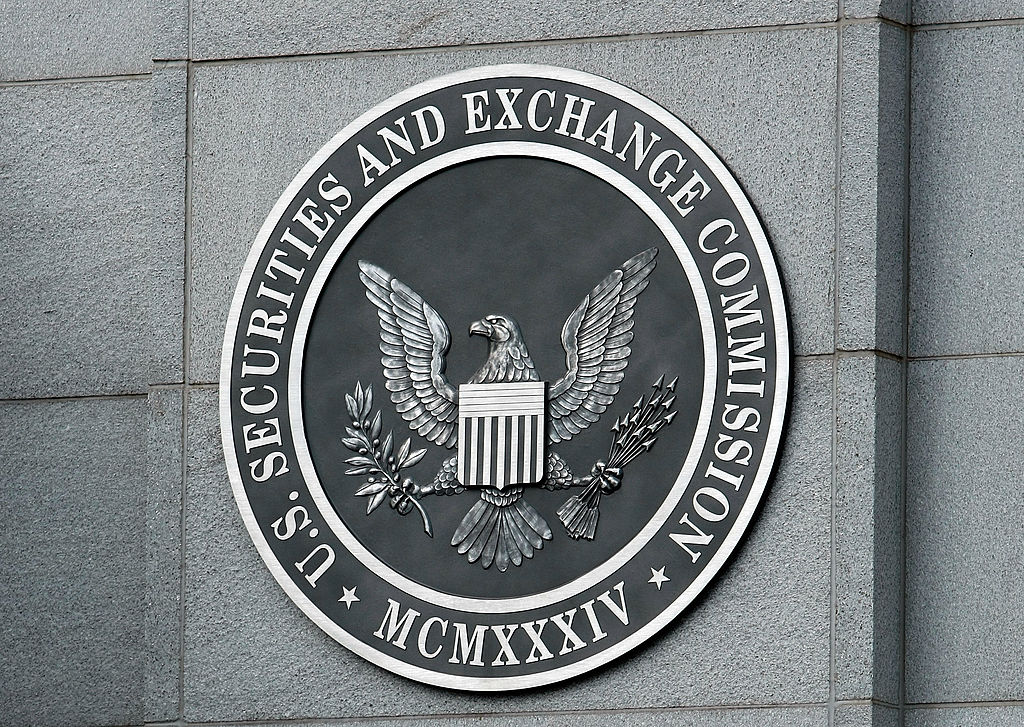As a co-founder of the Ethereum blockchain, Joe Lubin’s footprint is all over the world of crypto.
Some of the Canadian’s detractors argue that his footprint is perhaps a little too large, his reported influence on legislators and ties to centralized finance firms like JPMorgan Chase & Co. too pronounced for a longterm champion of the decentralization philosophy underpinning blockchain development.
Regardless, Lubin has played a foundational role in the crypto industry, leading or bankrolling some of the most well-known on-chain products. He said he sees developers increasingly incorporating artificial intelligence into those products, with blockchain too playing a growing role in AI as the nascent sector progresses.
The Princeton computing and electrical science graduate started his working life in the university’s robotics lab in the 1980s. He then moved into the world of financial technology (fintech) as vice president of technology at the investment giant Goldman Sachs before making a detour to Jamaica and a second career as a dancehall music producer.
Returning to fintech in the 2010s, he was there on the ground floor with programmer Vitalik Buterin, computer scientist Gavin Wood and others in setting up the Switzerland-based non-profit organization the Ethereum Foundation in 2014. He reportedly supplied a large chunk of the startup cash for the Ethereum network — now the world’s second largest blockchain after Bitcoin — before an acrimonious Buterin-led split saw the founders go their separate ways.
But Lubin was also at the time laying the foundations for what would become Consensys, a New York-based crypto development platform for applications based on the Ethereum blockchain. Lubin, as CEO, retains a supermajority stake in the company, valued by consulting firm PwC at US$46.4 million in June 2020. A separate valuation in May 2022 raised that figure considerably to over US$7 billion.
That was around the time of the Terra stablecoin project collapse and the onset of the ongoing period of crypto winter. Lubin spoke to Forkast’s Will Fee at Token 2049 in Singapore (Sept. 13-14) about Consensys, decentralization and the AI-backed evolution of crypto beyond the current bear market. The interview has been edited for clarity and length.
See similar article: AI, Asia and analytics — an interview with Nansen’s Alex Svanevik
Will Fee: You’ve seen your fair share of bear markets. What’s different about this one?
Joe Lubin: This bear market is partly the result of wave after wave of innovation which drove greater and greater excitement in our space. It was irrational exuberance similar to the dotcom boom and bust [in the late 1990s]. At that time, the whole tech and web space built toward this blow-off-the-top crescendo. It coincided with a global financial collapse. That’s very similar to what we’ve seen in our space.
We’re not at an end-of-life moment for monetary systems yet. But we’re getting close to it. Geopolitically, financially, economically, there are massive challenges in the world. Rising interest rates, inflation, those factors have made the capital markets environment very difficult. We got to a point with [crypto industry] building where we hit a top at the same time that the 80-year supercycle of the global economy also hit a top.
Which is great news in my opinion. The dissolution of the previous system, based on top-down command and control via centralized institutions, makes it clear that we need a new trust foundation. We need a new approach to building better, more secure, sounder systems that benefit more people. That, essentially, will bring greater economic and political agency to lots more people and lots more small organizations.
Fee: How does the current period of regulatory scrutiny, particularly in the traditional crypto powerhouse of the U.S., prevent those systemic changes from taking place?
Lubin: The current period of regulatory scrutiny is a natural reaction at the end of the economic super cycle. It’s a generational super cycle where you’ve got different age groups that interact with one another and repeat certain patterns. Then it’s a monetary system and debt super cycle. The people who are in control of the world have vested interests and want to perpetuate current systems. Rightly so, because a lot of people depend on those systems.

It’s really hard to wrap your head around a fundamentally new technology. [Decentralization] is a paradigm shift to a world where trust is bottom-up based on a globally shared database. That’s versus the current top-down system where authorities imbue trust and other levels of authority through intermediaries all around the world.
The regulatory reaction to that is playing out differently in different places. In the United States, the executive branch wants to maintain total control over all its intermediaries in the world. So they’re resisting pretty significantly. They would like to slow-roll or kill our industry. The legislative branch is mixed, while the judicial branch is starting to speak up quite significantly. So there’s some progress and some resistance.
When the internet and the web grew to prominence, the U.S. had the same sorts of struggles. But there are clear-thinking people out there working to protect little things like free speech and free market access, the proper functioning of markets and so on. There are these different forces at work in the U.S. I’m convinced that, while it would be an exaggeration to say things are moving quickly, we are starting to move directly on a path toward clearing all this up. That will help us make what we do better understood and better accepted.
Fee: Do you see progress arriving at a faster pace in places outside the U.S.?
Lubin: There are other parts of the world — Europe, Asia in particular — where there’s much more interest in supporting and benefiting from decentralized protocol technology and different kinds of decentralized assets. That’s partly because they see it as a leveling of the playing field with the U.S. This technology is so powerful. It’s going to change everything. That means that the nation states and major companies that do well in the space will probably see pretty rapid growth.
If you look at the U.K., France, various Asian countries, the Middle East, there’s a huge amount of activity and the conversations with regulators there are totally different. They’re eager to understand and eager to figure out ways to assist by modifying their own frameworks. Every new revolutionary technology needs a new set of societal rules under which to operate. At Consensys, we pay a lot of attention to what’s going on with the regulatory conversation in these other parts of the world.
Fee: In order to achieve those capabilities, how important is it for the blockchain industry to incorporate artificial intelligence and the analytical advances offered by that technology?
Lubin: It’s very important to bring AI into the blockchain space. It’s even more important to bring decentralized protocols into the AI space. At Consensys, we have developers, we have end users and we are working to bring them closer together. We see a future in which our end users are increasingly going to be builders with low code. With no code tools, they’ll be able to stand up DAOs, mint NFTs.
We think of these users as a broad spectrum of builders. If you’ve got a broad spectrum of builders who have economic and political agency, you probably want each of them to be able to learn stuff fast. For that they’ll need tutors, mentors. AI represents that prospect in some really interesting ways. We need to level up humanity in a big way. Our AI allies are going to get better and better at that.
Blockchain is going to be essential for the development and evolution of the AI space, which is currently broken into two major camps. One is private and extremely well resourced. Some of the best talent, research and engineering. Tons of compute, tons of data, tons of bandwidth, tons of storage. That camp will build great things. Has already built great things. Then you have the open source camp, which is moving incredibly quickly. Open source is really hard to stop. Once it gets going, it’s likely to become as powerful or more powerful than the more centralized camp.
Fee: Where specifically can decentralized technologies fit into the evolving use of AI in society?
Lubin: The failure mode for humanity is if the centralized camp gets so powerful that it operates the most powerful and dangerous weapon that a small group of humans have ever had for centralizing control on the planet. We need to guard against that. Whether it’s from a regulatory or any other societal perspective, we need to make sure that the best systems are built by many different people with many different technologies for many different purposes. That building needs to be largely out in the open.
Decentralized protocols can be part of that because you can have decentralized compute, you can have decentralized sourcing of data, you can have decentralized cleaning up of data. You can have decentralized training, decentralized inference for running the networks and the queries. We’ve got that technology. It’s a case of marrying AI approaches to decentralized protocols.
I think the first billion users of decentralized protocol technology and cryptocurrencies are going to be human. But I’m not sure who’s going to get to 2 billion first, whether it’s intelligent or not-so-intelligent machines and devices or humans. Either way, AI is going to be tremendous for our ecosystem for a bunch of reasons. Mainly just because it’s going to represent a giant amount of activity.

Fee: You’ve touched on some of AI’s more dystopian outcomes. How do advocates of either AI or blockchain — which, particularly since the FTX collapse in Nov. 2022, has taken a major beating in the mainstream press — generate public trust in these technologies?
Lubin: Any technology can produce harm. We’ve navigated a lot of difficult military, scientific, technological evolutions. I’m very convinced that we’ll do it this time too. Of course there will be challenges. I’m not an AI doomer at all. I think this is great and I’m a big fan of AI. I actually spent years, a long time ago, working in this space. I’m incredibly excited for what I think of as the necessary complementarity between decentralized protocols and AI.
On the trust front, there’s also a lack of trust in centralized finance. In addition, there’s a lack of understanding about the decentralized protocol space and all the good aspects of Web3 [a new phase of the internet built around decentralized blockchain technologies, the metaverse, and non-fungible tokens]. And that’s more of an educational issue rather than a case of saying “I know about that thing and I don’t trust it.”
Some really smart people are saying that about AI. But people who understand decentralized protocol technology and cryptocurrencies, they’re excited about it. Once you really get it and you’re not protecting some agenda, then it’s a pretty positive technology.
Fee: How do these technologies not then just become the preserve of the privileged few who do get it?
Lubin: By growing the corpus of the people who get it. Similar to the Web, you’ve probably seen famous snippets from talk shows from 1996 or 97 when people were saying silly things about this new technology. It’s just a question of education. It’s a question of younger generations who are crypto native growing older by a few more years and taking their positions in society. This will then just be the way the world works to them.
Fee: Finally, with investment in Web3 down significantly so far this fiscal year in the wake of various crypto scandals and collapses, how does the industry regain momentum?
Lubin: The situation’s similar to the post-dotcom boom and bust period. We had all this excitement and a lot of amazing evolutionary breakthroughs. Then something big happened. It was a big technological thing. A blow off. A big financial thing. And for the next ten years, all those people got busy. They took failed approaches and improved them. They took their expertise, formed a new company, joined a new company. All those people built e-commerce. They built the web and they transformed the way the planet works.
I think we [the Web3 industry] have that ahead of us for the next few years. Things move really fast in our ecosystem and there will be many astonishing new waves of innovation. But I don’t think we’re going to see any more crazy irrational exuberance in the short-term. Not unless the U.S. Securities and Exchange Commission (SEC) decides to green light a bunch of Bitcoin and Ethereum exchange traded funds (ETF) right at the same time.
Even then, I don’t think it’s going to be that crazy. There’s a wave of institutions out there chomping at the bit to get into our space. They’re chomping at the bit to get their customers into crypto ETFs. It’s going to proceed in a little more orderly fashion than it has in the past. But I think there will be tremendous growth. That growth will be a slower exponential, but it will be exponential.
See similar article: Silver Lining? Google Cloud’s head of Web3 talks Big Tech possibilities for the blockchain






